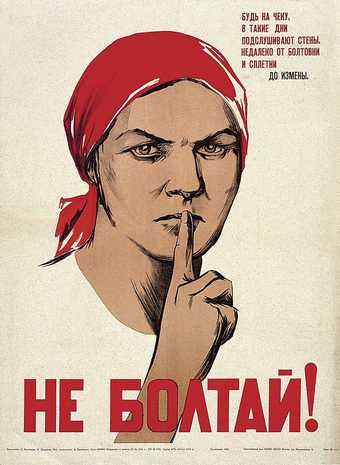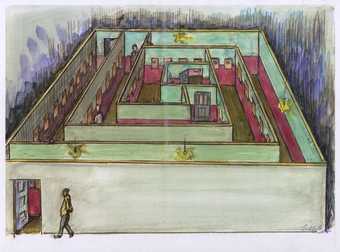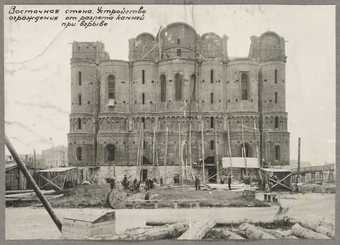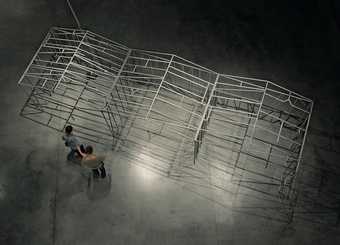
Arseny Zhilyaev, 'Labour' Market 2011, stainless steel, 750 x 182 x 200 cm
© Arseny Zhilyaev, photo © Garage Museum of Contemporary Art, Moscow
When I started making art in the mid-2000s, my taste differed vastly from the kinds of work people were making in Moscow – understandably, contemporary art did not yet exist in provincial Voronezh. Even 10 to 15 years after the dissolution of the USSR, a great deal of the Soviet still remained.
In some sense, the work of the Moscow conceptualists and counter-cultural literature were what formed me. The only things that were available on the internet in Russian at the time were performances by the Collective Actions group and works by Russian conceptualist artists more broadly. Their black-and-white aesthetic – permeated, on the one hand, with a mystical despair, and, on the other, with the possibility of slipping away from this despair into the world of art – was important to me then. As a result, my friends and I started to make textual performances and to think more consciously about the heritage of the Soviet Union.
I first got to know Kabakov through the memoirs of the Moscow conceptualist artist Viktor Pivovarov and through his ‘dialogues’ with the philosopher Boris Groys. In my more mature works, I can see that I took a lot from his methodology, above all his work with total installations, characters and fictional artists. Kabakov’s language is so developed that it is difficult to get close to, difficult to borrow from; at the same time, many of his methodological breakthroughs have become an inextricable part of the fabric of contemporary art, including my own. That is to say, beyond their interest in Soviet visual culture, the Moscow conceptualists developed some important insights that have proved far-reaching, even in completely different historical circumstances.
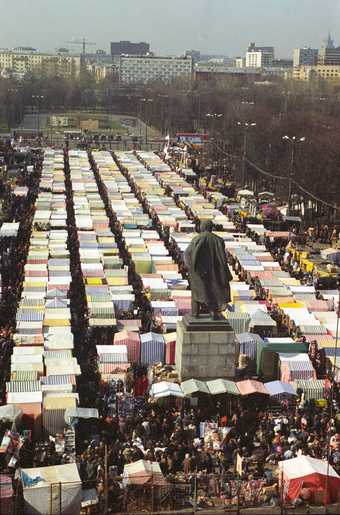
Moscow's Luzhniki market, 1997
SPUTNIK / Alamy Stock Photo
I moved to Moscow in 2006, thinking it was going to be a leap into a fairy tale, into a world of ‘trips out of town’, friendly disputes, schizoanalytic walks through the VDNKh (the grounds of the Stalin-era trade show in Moscow that was important for Andrei Monastyrski’s artistic practice) and the leafing through of albums by Ilya Kabakov and others. This was incredibly naïve on my part. By that time, Moscow no longer had strands of society into which you could weave yourself and, there, quietly argue about art in the kitchen while developing your aesthetics, as was the case for the conceptualists. This was a great disappointment and led to the rapid politicisation of my art, an approach that was not so characteristic of the often-detached position of the previous generation of artists. But some of their core methodological ideas, like using fictional characters, thinking about the installation of an exhibition in its totality, and the analysis of artistic language, still remain important to me and my art.
Arseny Zhilyaev (born 1984, Voronezh) is an artist living and working in Moscow and Voronezh. Translation from the Russian by Dina Akhmadeeva.

